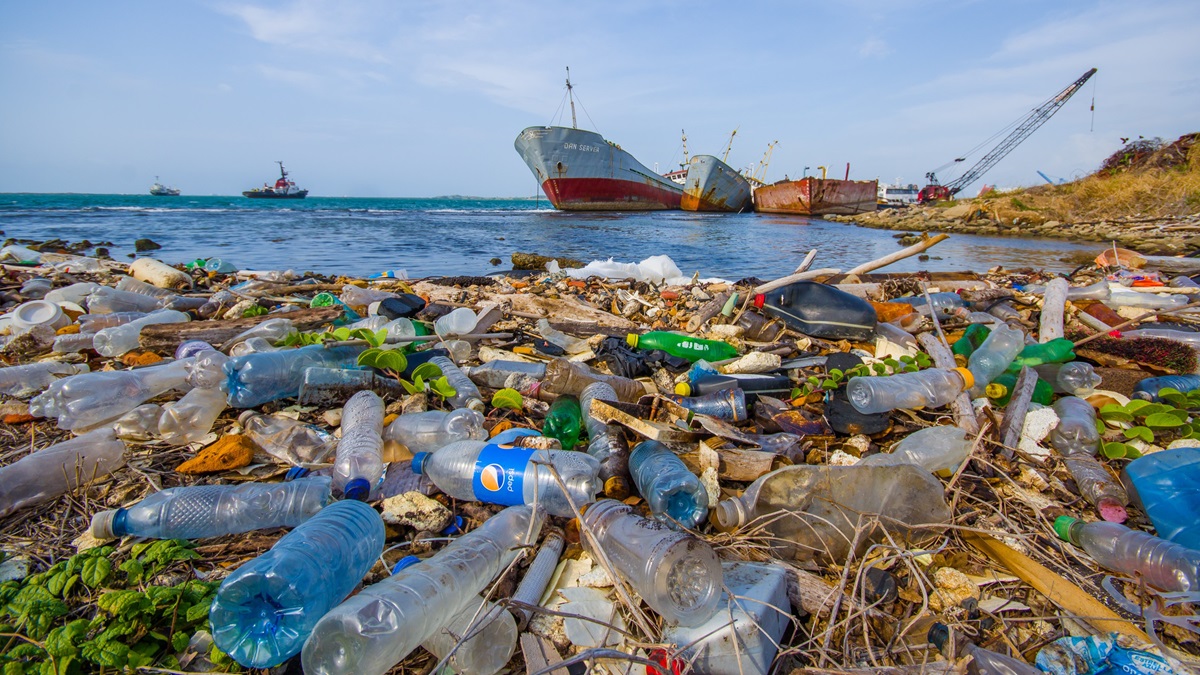• Image:©Shutterstock/Fotos593 | Plastic pollution washes ashore along the Panama Canal.
UN Trade and Development’s Global Trade Update (August 2025) reports that the global push to end plastic pollution by 2040 is gaining fresh momentum at the 5-14 August gathering of countries in Geneva for the final round of UN-led negotiations – known as INC-5.2 – aimed at developing a legally binding international instrument against plastic pollution.
The treaty would encompass the entire lifecycle of plastics – production, consumption and waste – within a fair and comprehensive framework.It also presents a critical opportunity to integrate trade, finance and digital systems into a coherent global response.
The high-stakes negotiations, underline that a successful treaty needs to include:
- Tariff and NTM reforms to support sustainable Substitute investment in waste management and circular Infrastructures digital tools for traceability and customs Compliance policy coherence across agreements reached through the World Trade Organisation, the United Nations Framework Convention on Climate Change, the Basel Convention and related regional frameworks.
The latest Global Trade Update shows that plastic production reached 436 million metric tons worldwide in 2023, with the traded value surpassing $1.1 trillion and accounting for 5% of total merchandise trade.
Despite driving global growth across industries, plastics exact a heavy toll on environmental and planetary health.
Alarmingly, 75% of plastics ever produced have become waste and mostly ended up in the world’s oceans and ecosystems.
Such pollution also threatens food systems and human well-being, especially in small island and coastal developing countries with limited capacity to cope.
Plastics have fueled global growth across various industries, but at an increasing environmental, economic, and social cost.
Today, plastic pollution represents a systemic and transboundary crisis, disproportionately affecting developing countries that have limited capacity for waste management.
In 2023, global plastic production reached 436 million metric tons, while trade in plastics surpassed $1.1 trillion, accounting for 5% of global merchandise trade.
However, 75% of all plastic ever produced has become waste, much of which leaks into oceans and ecosystems.
This growing imbalance threatens public health, food systems, ecosystems, and long-term development, especially in small island and coastal nations.










